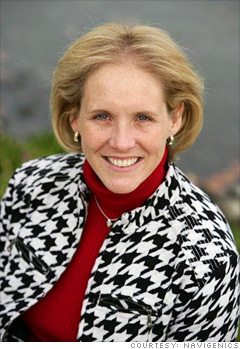
What was the "a-ha moment" that led you into tech?
It was my freshman year in college. I had never touched a computer before coming to Stanford, and a kid in my dorm had an old Exidy-64 cassette tape drive computer. Although I was never a great programmer, I thought it was amazing that pretty much whatever you could think up, you (or someone!) could make the computer do it. I realized that in this new world it was the value of your ideas and your hard work, not your family pedigree, that enabled you to succeed.
What has been your most radical career shift, and how risky was it?
Many people ask me about my most recent shift from consumer technology to biotech, and how rare that is. At first I thought it was a disadvantage, as I didn't know the players or have the business models memorized like the back of my hand. I spent a lot of time taking classes, reading, and meeting with anyone who would take the time to help me learn. What's happened is that more and more people who have been in the industry for a long time have told me what a huge advantage it is to come from outside. That coming from a world where focusing on building products that deliver customer value, providing great service, and focusing on quality and reliability is a huge asset to now bring into biotech.
What was your toughest day, and what did you learn from it?
When I was at Intuit I had to shut down an entire call center. Several hundred people were affected. It was terrible. These are people's lives. I was very nervous on the flight down and before talking to the team. What I learned is that if you are straightforward, don't hide, and treat people how you would want to be treated, you can make tough decisions for the business, without compromising your values and compassion.
NEXT: Sukhinder Singh Cassidy
